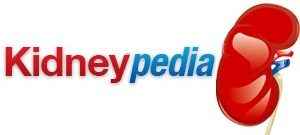Suffering from renal calculi is not an enjoyable part of life. Renal calculi are more commonly referred to as kidney stones and you are more likely to be affected by them if you are a male. In fact, more than 80% of kidney stones are contracted by males.
Depending on your specific type of diet and nutritional habits, you could also affect your chances of getting a kidney stone. Although this may seem scary for men, it is quite uncommon for men to get renal calculi before the age of 30 and they normally happen much later in life if you are a woman. The larger a kidney stone is in size, the more pain it will cause because it leaves your body through the urinary track.
Diet Tips
The key to avoiding renal calculi lies in your diet. This is because the food that you eat will have various minerals and kidney stones are caused by a buildup of minerals which ultimately forms a stone like crystal. By keeping a good balance between your calcium and phosphorus levels, you will have less risks of contracting renal calculi.
Reducing the amounts of food that you eat which have high levels of phosphorus in them will help your kidney function more normally. Some examples of foods which are low in phosphorus are broccoli, zucchini and non-
On the other hand, it is important for you to avoid foods which have high levels of phosphorus such as peanut butter, sardines and cheese.
Causes
The reasons that you could contract renal calculi are quite diversified as there are a number of factors which induce them. Getting a urinal infection without getting it treated is one of the various ways that you can get kidney stones.
Another common risk factor which is link to renal calculi is dehydration. When your body is constantly dehydrated whether it is caused by intense workouts or simply not getting enough fluids in your body, your risks of getting a kidney stone increase. If you are a diabetic or have high blood pressure you will also be at a higher risk.
Surgery
Most of the time, kidney stones will pass through your system without the need for surgery but every now and then you will need to seek medical attention. This is often linked to kidney stones which are larger in size. Since kidney stones can grow quite rapidly, it is important to see a doctor as soon as you feel any renal calculi symptoms to avoid it getting any worst.
One of the most commonly used techniques in the medical field for treating large kidney stones is to place a urethral stent through the bladder, the urethra and final through the kidney. This allows urine to pass beside the stone which reduces your kidney pain significantly.
Symptoms and Diagnosis
If you are experiencing symptoms of renal calculi, a hospital visit will result in various nursing diagnostics in order to determine whether or not your kidneys are functioning properly. High blood pressure, swelling of body parts and irregular blood flow to the heart are some symptoms that nurses will look for. Nurses will also ask the patients whether they often feel fatigue and anxious because these are also associated with kidney problems. Finally they will check your potassium levels in a lab test because irregular potassium levels are another renal calculi symptom.
Although kidney stones may seem like a painful thing to go through, they are often not even noticeable. Many people only realize that they had a kidney stone once it has passed through their system.
Larger kidney stones on the other hand can be extremely painful but are less common and getting diagnosed during the early stages is the best way to treat it with the less amount of pain involved. Remembering to keep a healthy renal diet is important in order to avoid this problem altogether.
